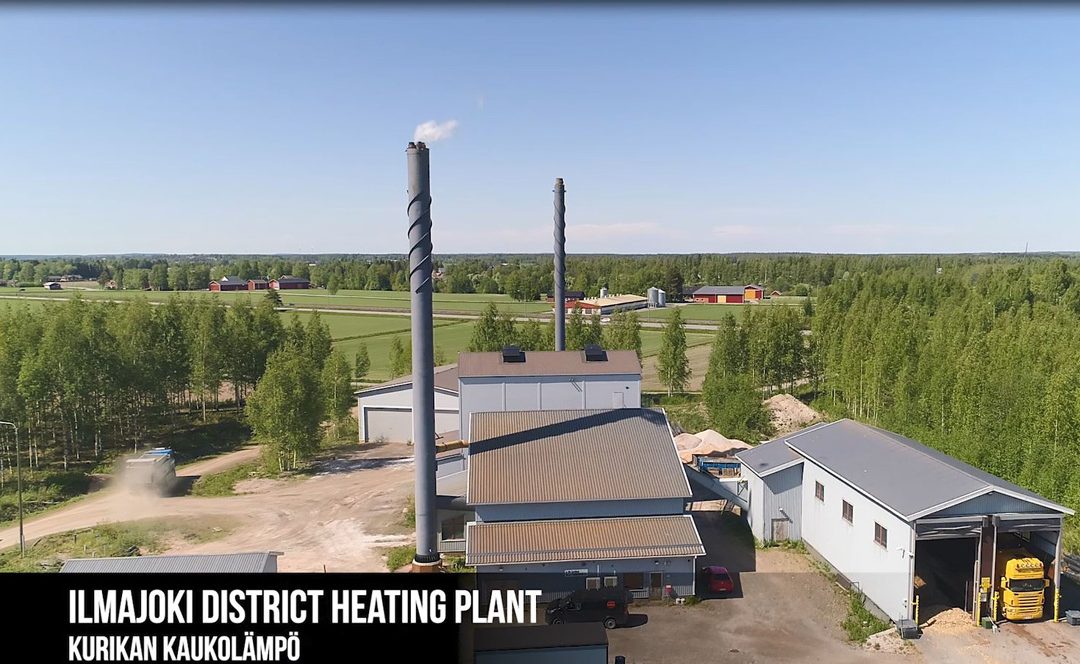As part of a three-day online partner meeting from June 8 to 10, 2020, the LowTEMP consortium continued the testing of the training material that began at the start of the year. The focus is on innovative strategies and tools for the planning, financing and management of low-temperature district heating systems (NTFW systems). Part of the meeting was a virtual trip to the Finnish region of South Ostrobothnia.
Efficient district heating systems are an important part of a sustainable energy supply. They help to reduce energy waste and greenhouse gas emissions (CO2). To achieve this goal, LowTEMP strengthens the know-how and awareness of the responsible public and private actors for the necessity of using intelligent and sustainable energy supply systems. These systems enable the use of renewable or unused surplus heat and the distribution of heat with a lower initial temperature.
After two and a half years of project implementation, sharing and expanding expertise, the LowTEMP consortium has now tested the second set of training materials for a two- to three-day seminar. This is aimed at local authority representatives responsible for energy issues, energy supply companies, energy agencies, planners and engineers in the Baltic Sea region and covers innovative strategies and tools for planning, financing and managing NTFW systems.
The project now has a further six months to test and finalize the modules and seminars. The current Europe-wide travel restrictions meant that lectures and exchanges were only possible virtually. Nevertheless, over 30 participants from nine partner countries took part in the online partner meeting, which was held in several sessions from June 8 to 10, 2020. The partners responsible for individual modules presented their teaching material in a 30 to 45-minute presentation, in which technical content was conveyed using practical examples and short tasks. The partners were able to provide constructive feedback on the individual units so that the modules can now be further improved and optimized.
The first series of seminars was presented at a virtual partner meeting in March of this year. The following modules were tested as part of the second series of seminars that has now been implemented:
Integration of solar thermal heat production in district heating systems (developed by AGFW-Projekt-GmbH)
Heat pumps as flexible solutions for lower supply temperatures and for modernising district heating systems (developed by AGFW-Projekt-GmbH)
Calculation of life cycle costs of NTFW projects – tools and manual (developed by the Brandenburg University of Technology Cottbus – Senftenberg)
Calculation of life cycles in (NT)FW systems (developed by RTU)
Good practice examples for existing and new systems (developed by IMP PAN)
During the remaining project period until December 2020, the LowTEMP training package will be supplemented with additional modules and then made available on the LowTEMP website and rolled out to other municipalities in the Baltic Sea region using a “train-the-trainer” approach.
A special highlight of this partner meeting was the virtual trip to the South Ostrobothnia region in Finland, where the partner meeting was originally scheduled to take place on site. In a video, the project partner Thermopolis presented the partnership with the sights of the towns of Seinäjoki, Ilmajoki and Lapua as well as the Koskenkorva vodka distillery, which implements an efficient circular economy and produces steam energy for the distillation process in its own bioenergy plant. In a second video, the Kurikka district heating plant was presented, which uses wood chips as fuel for the district heating supply of Ilmajoki and is investigating the possibilities of using waste heat as part of the LowTEMP project.
Background
The LowTEMP project is supported by the European Union (European Regional Development Fund and European Neighborhood Instrument) under the Interreg Baltic Sea Region Programme 2014-2020. Interreg enables transnational cooperation to tackle common challenges that do not stop at national borders, such as rising CO2 emissions. The LowTEMP project partners come from Poland, Germany, Denmark, Sweden, Finland, Estonia, Lithuania, Latvia and Russia.
The project contributes to the objectives of the EU2020 strategy by promoting energy efficiency, the use of renewable energy sources and the reduction of CO2 emissions. It also supports the objectives of national and European spatial development policies and the EU Strategy for the Baltic Sea Region (EUSBSR).
aconium GmbH developed the project on behalf of the lead partner IMP PAN (Institute of Fluid-flow Machinery, Polish Academy of Sciences) and is responsible for project, financial and communication management. aconium GmbH co-organized and moderated the virtual LowTEMP partner meeting.

